As part of the Aviation Task Force Covid Support Force, a Chinook helicopter was deployed in support of the NHS assurance of Harrogate, Exeter and Sunderland Nightingale Hospitals.
The Clinical Panel Assurance visits will enable the Nightingale hospitals to open on the desired dates, providing additional support to NHS Trusts in the fight against Coronavirus, say the RAF.
What is the Aviation Task Force?
As part of the military’s response to the COVID-19 crisis, forces from Joint Helicopter Command are on standby to provide aviation capability in support to civil authorities.
The new COVID Aviation Task Force has helicopters on standby across the UK to support the government’s response to coronavirus. The RAF Puma, Army Air Corps Wildcat, RAF Chinook and Royal Navy Merlin provide essential medical evacuation capabilities as well as the ability to swiftly deliver essential equipment and personnel to where they are needed across the nation.
The following efforts have been made:
- 3 RAF Puma helicopters have been detached to Kinloss Barracks in Moray, Scotland to support requests for assistance from the NHS in Scotland and Northern England
- 2 British Army Air Corps Wildcat helicopters have been detached to RAF Leeming, North Yorkshire, to support requests in Scotland and Northern England
- 3 RAF Chinook helicopters are on standby at RAF Odiham in Hampshire and a further 2 British Army Air Corps Wildcat are on standby at RNAS Yeovilton in Somerset to support Southern England
- 3 Royal Navy Merlin helicopters are also on standby at RNAS Culdrose to support Southern England, the Channel Islands and Isles of Scilly.


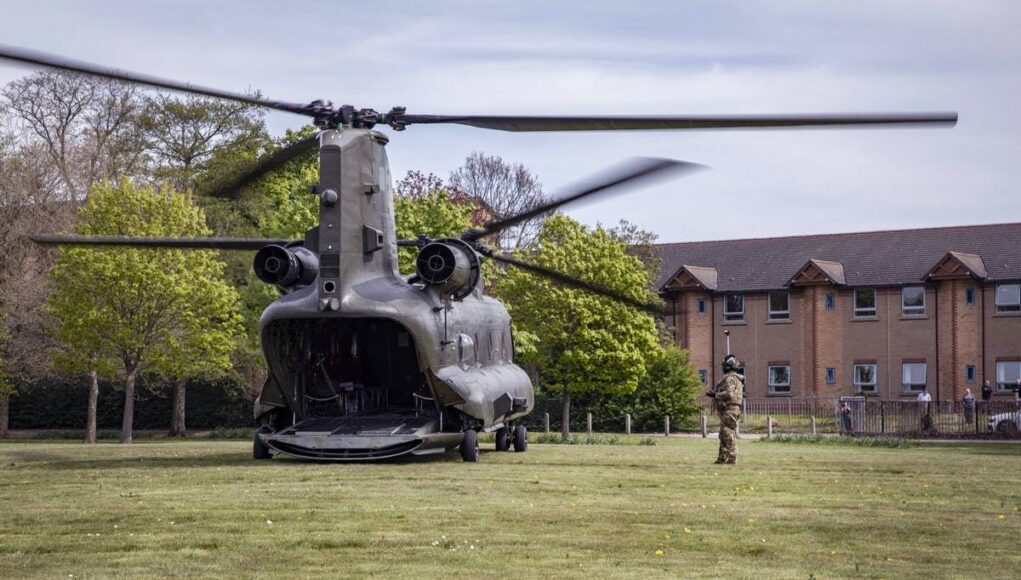
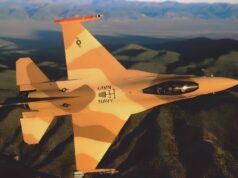


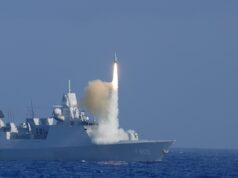


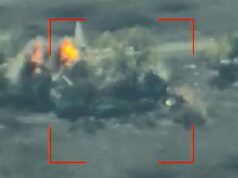
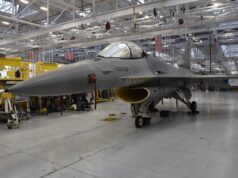
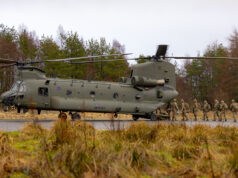


There could be significant changes in how our armed forces interface with the British emergency services? Once COVID-19 has been contained, the public perception of what is important may change, and that could result in less interest in defence spending, over increased spending on contagion preparation? Such a strategy would have overwhelming public support, and obviously, increased spending on the NHS would be a certainty, and possibly, at the cost of the MOD budget? Okay, the general public understands the need for armed forces, however, the mood is bound to change in favour of ensuring Britain is prepared to fight another contagion, if God forbids, we face another outbreak.
Greater military integration with national emergency services, could reconfigure some Army and Airforce units, where broader sharing of assets over current practices can’t be ruled out? The net effect on the current MOD budget, could result, in redirected funds towards contagion readiness? The national provision could be huge with some military establishments being commandeered for mass storage of NHS equipment and necessities. Some MOD sites may be handed over lock stock and barrel in the interim before purpose-built sites are established. Whatever the outcome, the future of government military budget disposition, will make for interesting reading?
I see no necessary linkage.
I would hope that lessons will be learned such that the NHS can ideally cope with the next Covid event without support from the armed services. Better integration of health services; comprehensive procurement system with all delivery points such care homes, private hospitals connected; sufficient stocks of equipment, list of ‘reservist’ medical staff, better decontamination protocols for care homes, quarantine principle applied to hospital provision and internal design, NHS and Private testing labs. In this situation there is a case for epidemic related hospital medical staff and care home staff to be resident in dedicated isolation facilities. Its really a war situation.
I understand where you are coming from but I think it is something should always remain separate.
There should be no cost sharing, the NHS budget should be have anything to do with military equipment and to be honest for it to be viable to much of the NHS budget would be put into the programme and into assets that will not get the use as they are so expensive to use.
The MACA system we currently have is the best balance between maintaining the correct skills on the military frontline and still providing assistance as required to the civil authorities.
Integration wise I can tell you there is no issue, the key talent of any military force is flexibility and working with people that you haven’t work with before, its something that is done on an extremely regular basis (Cold Response, JEF, NATO, ISAF) and is something the military retains a particular talent for.
Let be honest here, the military assets are only meant for one thing, everything else it can be used for is a bonus.
I’d be very surprised if the MOD budget is not cut in order to pay the huge costs of strategic medical supplies. I don’t believe some people grasp the true nature of the huge effort that will be required, to ensure that a ‘next time’ response will be fast and plentiful. 60+ million people will need to have basic protection for a worst-case contagion, say, an airborne killer, resulting in thousands of cases a day. After Covid-19, public nervousness will be at an all-time high, regardless of how quickly, the current virus is brought under control. An assurance that a maximum effort will be made available immediately a contagious virus is identified, is the very least the public will accept.
To ensure all avenues of rapid medical response is in place, will cost billions even with close international cooperation and data sharing.
The scale of what I’m suggesting will hit the UK economy in a way we have not seen since 1945, and possibly in history? No UK political party will ignore public demand for the above. Nothing is more urgent than protecting our population from lethal disease, and that will most probably be the policy of many countries across the globe. Maybe, one outcome of all this will be the realisation, that money spent on arms, is money not spent against the fight to defeat disease?
Cross charging is standard practice. It would not be a problem!
Government tends to work in silos. Effective action across departments could result wide ranging benefits. I can see the Civil Service trying to block it though. The mood of the country is shifting though. People want the NHS to work properly without delay. I think the political will is there!
The shift in public opinion will be powerful and very focused on disease prevention. Up to now, the British people have shown remarkable tolerance and compliance with government orders. People realised that the steps required were also being applied across the World. There was sympathy for the Government who found themselves creating policy on the hoof. However, such compliance will only be adhered to in the future if there is a clear contingency in place to quickly react and contain. And that will require a considerable effort and support infrastructure, and that’s where the financial petard will be discovered.
Hi Maurice, I’m not so sure it was that remarkable. UK Governments do not have a history of abusing their powers in that way unlike many other countries. In my opinion the jury is still out on Boris’s Government it will either be the most radical for many decades or a damp squib. We shall see!
Financially the UK is in a much better position than most. We are a resourceful people and will do what needs to be done.
Any sensible Government, once Covid has passed, will look carefully at the disaster planning in a whole range of areas.
The real heat in regards to fighting contagion will come once this strain of COVID is over. Any wavering in regards to building up adequate medical provisions, by the Government, will not be tolerated. Just how the country will pay for such readiness is a vexed question, however, it will be horrendously expensive. So, something has got to give, and it won’t be NHS budgets, that’s for sure?
I agree. Covid has woken mankind to the threat of viruses and that may well have been a tactical mistake by the virus. There has been talk for many years about a capability to detect and destroy any virus. Those projects may well get the funding they need now that viruses have moved from the category of nuisance to active threat. This may save money ultimately. We are overdue a comprehensive cure in a whole class of illness.
Government has perhaps paid insufficient attention to disaster recovery preparations over the years. The military is the backbone of the establishment and must survive and even thrive when the country is attacked. A sensible Government would ensure the military can withstand any such eventuality.
A sensible move also might be to spend our way out of trouble. Certain companies who might otherwise be in trouble could well get a few orders coming in.
Hmmmme – I thought I’d offer a slightly different and maybe controversial perspective on this.
A friend of ours works in one Nightingale hospitals and has less than favourable things to Say about some of the self important senior individuals involved trying to grasp PR opportunities for their gongs. Half the work seems to be to keep the TV and press out…..and get people to focus on running……a hospital. Quite hard as there isn’t a huge amount of medical work going on in them – thankfully.
An email trail I was sent by someone else, we were supplying some materials, came straight out of the plot rejects pile for Yes Minister – and incase you didn’t grasp it Nightingale was the name of a hospital, in an episode of Yes Minister. Couldn’t make it up.
The Nightingale project is a product of the politicians syllogism – “we need to be seen to do something, this is something, therefore we must do it”
Let’s face it the only reason things got so out of control that the Nightingale Project was even vaguely needed was that everyone failed to do the Simple obvious things like shutting down international flights, making sports play without crowds, shutting pubs etc weeks too late. Some of that would have been easy and relatively painless to do as a means of ‘flattening the curve’ if done early enough. In fact if only doing the first thing, restricting flights and having quarantine periods, would have slowed things down an awful lot.
While I suspect the RAF team are working hard, doing as ordered, I’m not totally sure what a massive asset like a Chinook is adding to the NHS that couldn’t be achieved with more civilian type cabs? I‘d grasp it if it was pulling heavy stuff around that was urgently needed or medivacing people from remote location – but as a taxi? Odd and in my limited experience not a wonderfully comfortable taxi either.
I’d rather focus on the great work the NHS people & teams are actually doing.
“While I suspect the RAF team are working hard, doing as ordered, I’m not totally sure what a massive asset like a Chinook is adding to the NHS that couldn’t be achieved with more civilian type cabs? I‘d grasp it if it was pulling heavy stuff around that was urgently needed or medivacing people from remote location – but as a taxi?”
The ability to move people to and from remote locations faster than anyone else, not just in flight time but in response time as well. From what I understand civilian air ambulances won’t touch suspected or confirmed covid patients.
I’m 100% with the RAF on this one – they are delivering the service they were told to.
My comment arises from the articles, and those before it, that implied that Merlin was being used for the isolation pods.
The article above appears to quite clearly state that Chinook is being used to taxi well NHS staff between Nightingale sites.
As I understand it some of the Nightingale sites are being mothballed from tomorrow anyway.
Don’t get me wrong Chinook is brilliant in certain arenas and I’m 100% supportive of the UK’s investment in the fleet we have. It does the job – very well.
Could it be the RAF has decided to assist the UK and is using allocated flight hours in this way